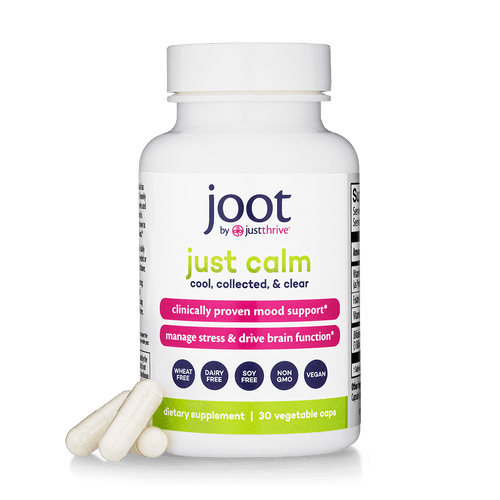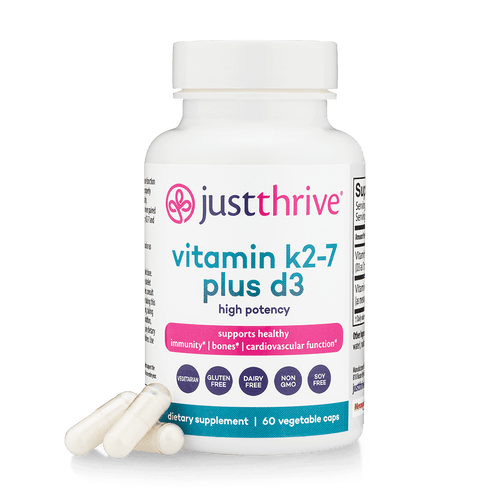And the best ways to get yourself out
You’re struggling to get even simple tasks done. Everything from finishing a work project to working out to taking a shower feels impossible. It’s hard to make decisions like what to have for dinner.
When your whole life seems overwhelming, you’re probably stuck in a state of fight-or-flight.
That means your body is constantly off balance, never fully relaxing, and not working the way it’s supposed to. And that can make your whole life feel like an underwater maze you can’t escape.
But there are things you can do to get yourself unstuck and avoid getting trapped again.
How Fight-or Flight Works
You’re naturally programmed to protect yourself from threats. When your body senses danger, the alarm bells go off and it shifts into a state of high alert called fight-or-flight.[1] Basically, you can stand your ground and fight the danger or run away from it.
Both of those options require heightened senses and attention. Faster breathing to grab more oxygen. A big release of sugar-boosted energy. Extra blood flow to your heart, lungs, arms, and legs. So your body releases cortisol—the stress hormone—to make sure all of that happens.
This built-in survival mechanism is supposed to work just long enough to get you out of danger. And when you’re safe, your body shifts into its calm down state called rest-and-digest.
Sometimes, though, people get stuck in a state of fight-or-flight. And that means your nervous system never settles down.

How Do You Get Stuck in Fight-or Flight?
Your fight-or-flight system is designed to help you deal with life-threatening situations: A fire, being chased by a wild dog, imminent physical danger. All of those have a stopping point where you’ve escaped or won the fight and survived.
But other things can trigger that same response. And they may not have a clear stopping point. Like memories of past trauma that make it feel present. Or everyday ongoing stressors like:
- Worrying about bills
- Pressure and deadlines at work or school
- Working at a job you dislike
- Family conflicts
- Dealing with an on-going illness
Your body doesn’t know that those everyday stressors don’t present physical danger; it just knows you feel stress. So it does what it needs to do to keep you safe. It releases cortisol and triggers your fight-or-flight response.
Since these stressors don’t have clear stopping points, your body never gets a signal to settle down. So you stay locked in that state of fight-or-flight. Always on high alert. Always on edge. Never feeling calm and safe.
It’s exhausting being on high alert all the time. So you feel unusually tired. Every little thing irritates you. And it takes a huge toll on your life and your health.
Being Stuck in Fight-or-Flight Upends Your Health
When your body is in a state of fight-or-flight, dozens of life-sustaining tasks get turned off. That’s necessary to prioritize safety and survival. But when you’re stuck in a prolonged, fight-or-flight state, those essential tasks continue to take a back seat. They’re either done haphazardly or not at all. This includes things like:
- Sleep
- Digestion
- Cellular repair
- Hormone production and management
- Detoxification
In that stuck position, your cortisol faucet stays open, throwing your whole body out of balance.[2]
That includes long-term imbalances in your gut microbiome, the trillions of bacteria in your gut that serve as your body’s main wellness center. Stress creates an inhospitable environment for beneficial probiotic bacteria, allowing harmful pathogens to dominate. That condition is called dysbiosis, and you’ll feel it in your gut. You might be plagued by diarrhea, constipation, abdominal pain, and bloating. And because your gut microbiome is so foundational to your overall health (containing 70-80% of your immune system), problems can spread throughout your whole body.
That includes making it harder for your body to manage stress. Which makes it even harder to turn off the stress response. It’s a vicious cycle.
Luckily you have the power to flip that stress switch yourself and break free. You just need to know the most effective approaches.

Turning Off Your Stress Switch
The constant stressors you face can trap you in fight-or-flight, with your stress switch stuck in the on position. So you need to help your body learn how to calm down, so it can flip that switch off and finally move on.
Here are the best ways to bring your nervous system into balance, stem the cortisol flow, and let your body rest-and-digest. Incorporate as many of these habits as you can every day to help your body cope with the stressors all around you without getting stuck.
1. Get moving, especially outdoors.
Exercise is a great stress reliever. It gives all that fight-or-flight energy somewhere to burn off. At the same time, being in nature has a calming effect. Research shows that exercising outdoors settles stress more effectively than indoor workouts, leading to lower cortisol levels and feeling of revitalization.[3]
Wish you were more motivated to workout? Try this!
2. Practice breathing techniques.
Mindful, controlled breathing helps soothe your nervous system. It reduces cortisol levels, slows the heart rate, and helps balance your mood.[4] Whether you prefer box breathing, belly breathing, or alternate nostril breathing, make sure to do it for at least one minute. Five minutes is even better.
3. Meditate.
Spending even five or ten minutes meditating can restore a sense of serenity and help your nervous system settle down. The effects last long after your meditation session, and that increases the more you practice.[5]
4. Balance your gut microbiome.
Your gut bacteria have a significant influence on your body’s stress response.[6] Beneficial probiotic gut bacteria help your body regulate itself, even in the face of constant stressors. They produce GABA, a calming brain chemical that helps soothe your mind and body, decreases excess activity in your nervous system.[7] Probiotic bacteria also help manage cortisol and other stress hormones so they remember to turn off when they’re supposed to.[8]
5. Count on “stress magician” B. longum 1714™.
A unique probiotic strain called Bifidobacterium longum 1714™ helps your body lower cortisol levels and quiet stress signals, so you have a chance to fully relax.[9] Several studies show that B. longum 1714™ supports effective stress management. One clinical trial found that B. longum 1714™ decreases nervous brain activity in people dealing with social stress.[10] Another showed that the probiotic promotes healthy sleep quality during stressful situations.[11]
Combining any or all of these techniques and tools will help your body manage stress effectively, giving you a chance to fully relax and rejuvenate.
Reclaim Your Inner Peace with Just Thrive
Getting unstuck and moving your body through the full stress cycle calls for a well-balanced gut microbiome full of beneficial probiotic bacteria and a healthy stress management system.
Just Thrive Probiotic delivers a powerful blend of four proven spore probiotics that work quickly to keep your gut microbiome in healthy balance. Just Thrive Probiotic contains:
- Bacillus subtilis HU58™
- Bacillus indicus HU36™
- Bacillus coagulans
- Bacillus clausii
Just Calm contains the clinically studied “stress magician” Bifidobacterium longum 1714™ and a stress-soothing blend of vitamins B6, B9, and B12.
>> Add Just Thrive Probiotic and Just Calm to your anti-stress toolkit today. (Bundle & save!)
Wondering if Just Thrive Probiotic and Just Calm will be right for you? We can help. We’re confident that when you use each as directed, you’ll notice how effectively your body handles stress.
But if you’re not 100% happy, we’ve got your back.
If you’re not completely satisfied with your Just Thrive purchase for ANY reason, you can take advantage of our “Bottom of the Bottle” money-back guarantee: Love your Just Thrive purchase, or request a full product refund at any time… Whether it’s 3 days, 3 weeks, or 3 months later… Even if the bottle is empty!
Sources
- Russell G, Lightman S. The human stress response. Nat Rev Endocrinol. 2019 Sep;15(9):525-534.
- McEwen BS. Neurobiological and Systemic Effects of Chronic Stress. Chronic Stress (Thousand Oaks). 2017 Jan-Dec;1:2470547017692328.
- Bramwell RC, Streetman AE, Besenyi GM. The Effect of Outdoor and Indoor Group Exercise Classes on Psychological Stress in College Students: A Pilot Study with Randomization. Int J Exerc Sci. 2023 Aug 1;16(5):1012-1024. PMID: 37650002; PMCID: PMC10464750.
- Perciavalle V, Blandini M, Fecarotta P, Buscemi A, Di Corrado D, Bertolo L, Fichera F, Coco M. The role of deep breathing on stress. Neurol Sci. 2017 Mar;38(3):451-458. doi: 10.1007/s10072-016-2790-8. Epub 2016 Dec 19. PMID: 27995346.
- Tang, YY., Hölzel, B. & Posner, M. The neuroscience of mindfulness meditation. Nat Rev Neurosci 16, 213–225 (2015).
- Madison A, Kiecolt-Glaser JK. Stress, depression, diet, and the gut microbiota: human-bacteria interactions at the core of psychoneuroimmunology and nutrition. Curr Opin Behav Sci. 2019 Aug;28:105-110. doi: 10.1016/j.cobeha.2019.01.011. Epub 2019 Mar 25. PMID: 32395568; PMCID: PMC7213601.
- Otaru N, et al. GABA Production by Human Intestinal Bacteroides spp.: Prevalence, Regulation, and Role in Acid Stress Tolerance. Front Microbiol. 2021 Apr 15;12:656895. doi: 10.3389/fmicb.2021.656895. PMID: 33936013; PMCID: PMC8082179.
- Farzi A, Fröhlich EE, Holzer P. Gut Microbiota and the Neuroendocrine System. Neurotherapeutics. 2018 Jan;15(1):5-22. doi: 10.1007/s13311-017-0600-5. PMID: 29380303; PMCID: PMC5794709.
- Allen, A., Hutch, W., Borre, Y. et al. Bifidobacterium longum 1714 as a translational psychobiotic: modulation of stress, electrophysiology and neurocognition in healthy volunteers. Transl Psychiatry 6, e939 (2016).
- Wang H, Braun C, Murphy EF, Enck P. Bifidobacterium longum 1714™ Strain Modulates Brain Activity of Healthy Volunteers During Social Stress. Am J Gastroenterol. 2019 Jul;114(7):1152-1162. doi: 10.14309/ajg.0000000000000203. PMID: 30998517; PMCID: PMC6615936.
- Moloney GM, et al. Improvements in sleep indices during exam stress due to consumption of a Bifidobacterium longum. Brain Behav Immun Health. 2020 Nov 13;10:100174. doi: 10.1016/j.bbih.2020.100174. PMID: 34589719; PMCID: PMC8474585.














